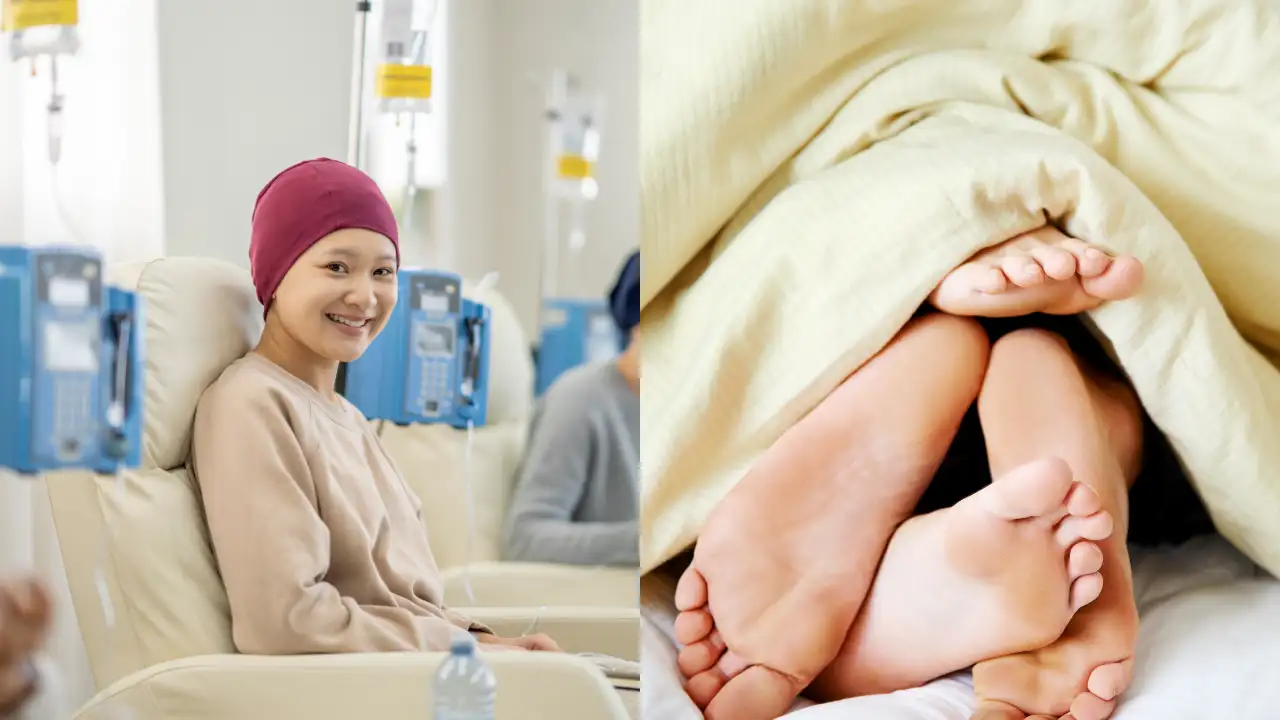Sex and intimacy might not be the first things on your mind after a cancer diagnosis, but many patients do wonder whether it is safe or even possible to maintain a sexual relationship while undergoing chemotherapy. The short answer is 'yes', but with precautions. Medical oncologists say that while chemotherapy does not strictly rule out sexual activity, it is important to consider how the treatment affects your body, immunity, and overall well-being. While speaking to your doctor and open communication with your partner are crucial steps in safely navigating intimacy during chemotherapy, two experts help us understand this often-overlooked but important question in greater depth.
Dr Siddhesh Tryambake, Consultant Medical Oncologist at TGH Oncolife Cancer Centre, opens the conversation with a clear nod to personal comfort and medical guidance. “Cancer patients can have sexual intercourse while undergoing chemotherapy, but it is necessary to consult the doctor before doing so,” he states. Chemotherapy, after all, is not just tough on tumours; it is tough on energy levels, mood, and yes, libido.
“Fatigue, nausea, vaginal dryness, or lower libido may impact your comfort, and you will be less interested in sex,” he says, adding that open communication with your partner is not optional; it is essential. If you are not feeling up to it, say so. If you are, but with conditions, talk it through. Either way, syncing your emotional and physical state with your partner’s understanding is the real pregame here.
And then there is the matter of protection. Dr Tryambake points out that chemotherapy drugs do not just disappear the moment your session ends. “Doctors tend to advise using protection during intercourse because chemotherapy drugs may be present in bodily fluids for a few days even after taking cancer treatment.” Condoms help keep your partner safe from exposure and infections—important, especially since your immune system is working overtime just to keep you upright.
He also adds a word of caution for women: “It is important to avoid conceiving during chemotherapy, as the drugs can harm the developing baby.”
Dr Chetna Bakshi, Consultant Medical Oncologist at Jupiter Hospital, Thane, offers a similar take but adds more depth to the picture. “The response is not simply yes or no; it varies depending on how the person feels and what treatment they are having,” she says. Not every chemo journey is created equal.
“Chemotherapy affects the whole body. It can lower energy levels, reduce libido, and make the body more prone to infections,” Dr Bakshi warns. And while intimacy might seem like a good distraction, there are real risks involved if your white blood cell or platelet counts are low. “For those with low platelet levels, sex may cause bruising or bleeding,” she explains. And if there is vaginal soreness or dryness? That can make sex feel more 'ouch' than 'ooh'. “Lubricants and honesty with a partner can be of assistance,” she advises.
One detail many overlook? “Chemotherapy medications may still be in body fluids 48 hours post-treatment,” Dr Bakshi points out. That is your cue to hold off on oral sex and absolutely use condoms during this window—especially if your partner is pregnant or trying to conceive. Safety first, pleasure second.
But beyond biology and precautions, Dr Bakshi sheds light on a subtler layer—the emotional terrain of chemo and intimacy. “Chemotherapy can impact mood, body image and self-image, which all play a role in desire or self-confidence.”
Her advice? Do not rush. “Practising patience, with self and partner, can take some of the edge off.” Even exploring support services or therapy can help navigate the emotional fog. Because intimacy is not just about sex; it is about feeling seen, heard, and loved in a body that is going through war.
